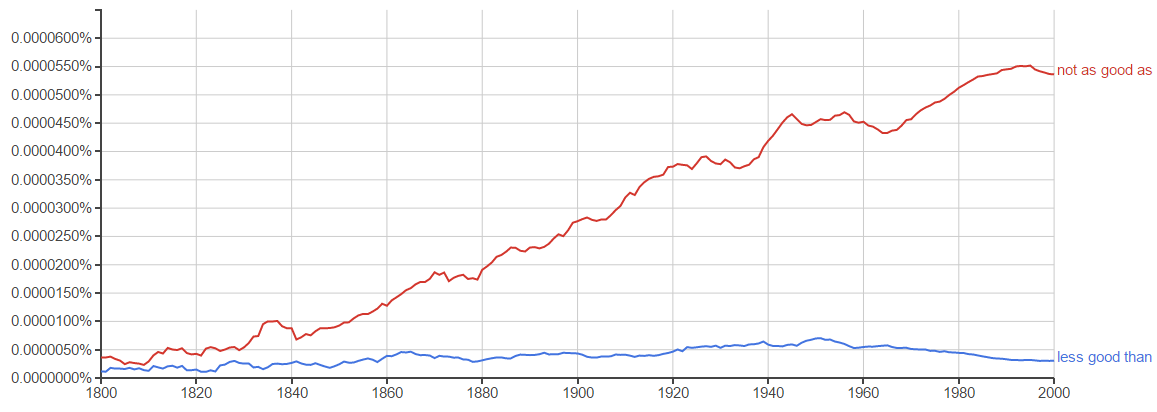"Less good" is a rather uncommon phrase; it's usually used incorrectly by people that have a weak command of the English language (at least, in the United States of America). Of course, you could construct a sentence where "less good" is perfectly appropriate. This occurs when you're comparing two things that are good (things that are done for some benefit), but one is of a lesser degree than the other.
Saving money later does less good than saving money earlier.
CPR does less good than avoiding an accident.
In this case, "less good" is equivalent to "is not as good as" (with some other minor word changes). In this context, "good" is basically a stand-in for a type of quantity (thanks to @LessPop_MoreFizz for the comment).
The usage of "less" here is the same as we might compare two actual quantities: "5 is less than 10". Less is a comparison of two quantities, so you should actually have two different things that can be compared in a quantifiable manner. "Less" typically goes between two things that are being compared.
For example, you should avoid less good in the following sentence:
I did less good on that test.
In this case, you're not actually comparing two things, so you'd probably go with one of:
I didn't do well on that test.
I did worse on that test than my previous tests.
Or, in response to a question:
How did you do on that test? Not so good.

